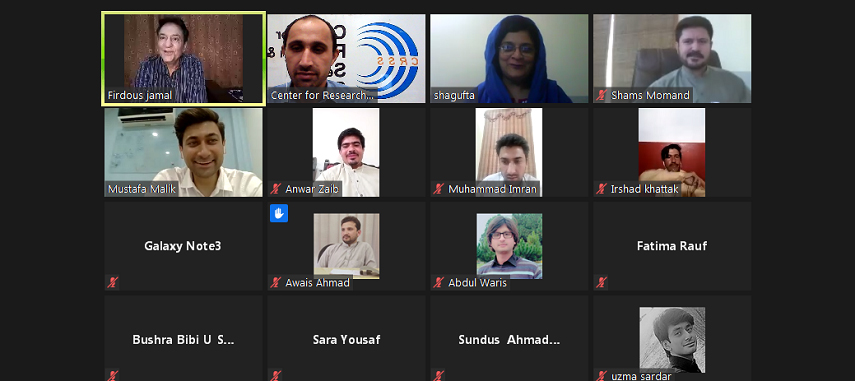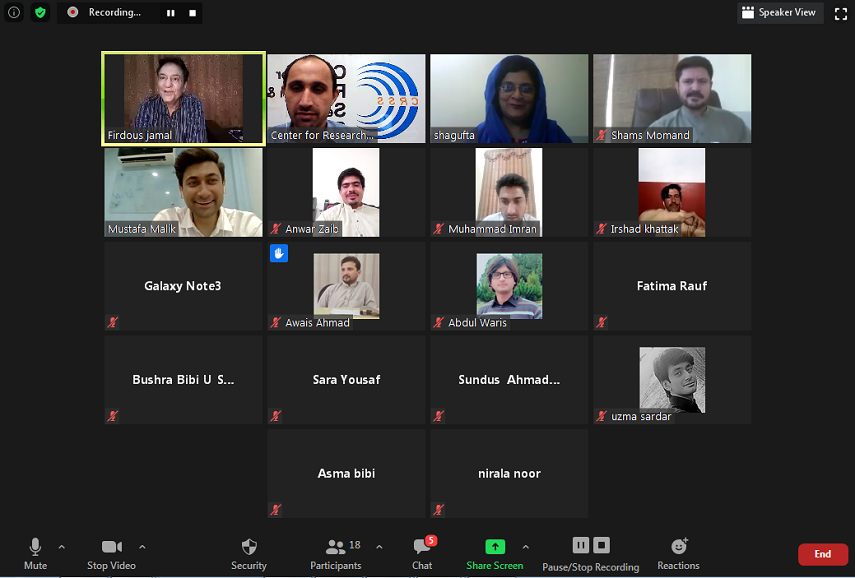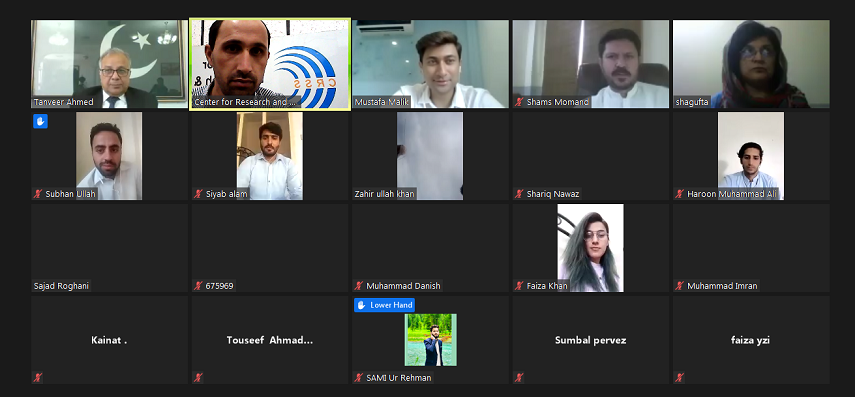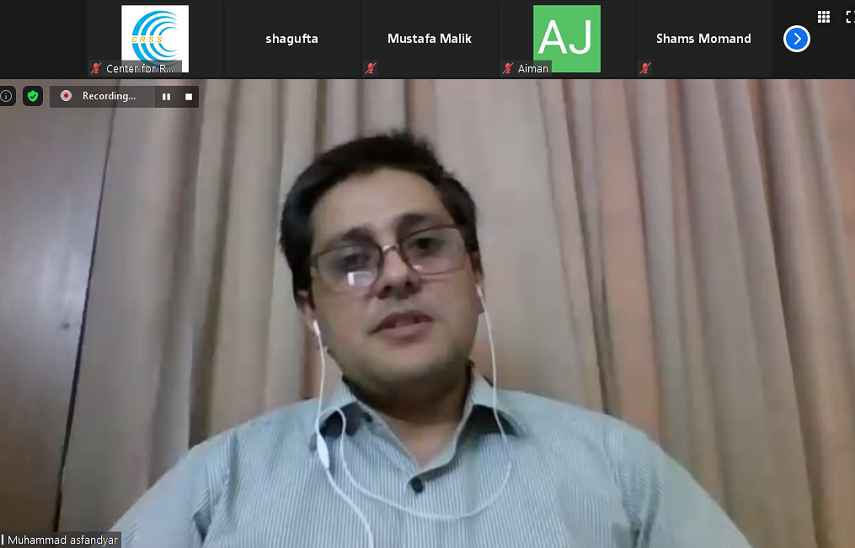The latest rounds of Ulasi Taroon Online Youth Capacity Building Workshops discussed the topics of “Peacebuilding and Conflict Resolution”, “Diversity and Quaid’s Vision”, and “Art, Culture and Social Cohesion” during the tenth, eleventh and twelfth rounds, respectively, with around 60 youth leaders from different public and private sector universities across Khyber Pakhtunkhwa.
The veteran actor Firdous Jamal, while speaking during the twelfth round, noted that the need for communication and dialogue is greater than ever in the times of conflict and disagreement. Only by the culture of dialogue, can we prevent and resolve conflicts. The ability to articulate one’s point of view is extremely essential to resolve misunderstandings and live in harmony with each other. Being articulate – communicating effectively – is a critical soft skill for conflict resolution of peaceful coexistence.
Culture is the reflection of a society. The culture of Pakistan is known around the world for its hospitality, cooperation and exceptional resilience in the times of crises. As responsible citizens, we should all portray the positive sides of Pakistan that make us proud and we should all celebrate and promote. Intercultural interactions are critical to harness cultural diversity as a connector, and for shared goals of peace and prosperity. It can also help developing the much-needed social capital for cohesion and development. While we should keep our culture alive, we should also be open to adopt the best practices of other cultures.
The Ambassador of Pakistan to Kuwait, Syed Sajjad Haider, noted during the eleventh round that Quaid-e-Azam – with his vision for Pakistan – believed in a democratic country with inclusive and impartial government, religious freedom, rule of law and equality for all. He always stressed upon tolerance and mutual respect regardless of different backgrounds of people.
We can also develop in synch with the developed countries around the world through acceptance of diversity and using it as a strength, instead of divider. The minorities are as much of equal citizens as majorities and equally entitled to fundamental human rights guaranteed by the constitution. Only by their inclusion, can social cohesion be strengthened. The societies that lack tolerance are more vulnerable to conflict and disintegration.
Mutual cooperation mechanism among the citizens along with their shared goals and common objectives are essentialities for socio-political and economic progress. For democratic development, we must equip our citizens with the peacebuilding tools like dialogue, and sensitize them on the core constitutionals values of peace and cohesion. Another important aspect of development is accountability mechanism, where everyone is indiscriminately subjected to law. Rule of law is upheld in the societies with across the board accountability. The youth should learn about their rights and responsibilities to be able to hold their elected representatives accountable.
Mr. Muhammad Asfandyar Marwat, Lecturer, Institute of Peace and Conflict Studies, University of Peshawar noted during the tenth round that the biggest threat to equality is inequality anywhere no matter how insignificant. Peace comes through equal citizenry and social inclusion of all the citizens without any discrimination of color, cast or creed. Denying citizens their fundamental human rights is detrimental to peace and cohesion. Peace is not a one-off event, rather a regular activity that responsible citizens undertake on daily basis in the best interest of their community and larger national interest.
Finding the underlying causes of conflict is key to the true understanding of an issue for successful conflict resolution. Lack of information, misperceptions and miscommunication often lead to conflicts. Conflict is not always an unhealthy phenomenon, infact conflict in the open-minded and democratic societies can lead to the formation of new knowledge. We are all different in unique ways, while these differences cannot be eliminated, we can still accept our diversity as a measure of peaceful coexistence.
These events were held as part of the Center for Research and Security Studies’ (CRSS) efforts to continue to cultivate the young through online conduits for communication, in the absence of physical platforms of youth engagement and development during COVID-19 times.
About Ulasi Taroon:
Ulasi Taroon is a counter radicalization initiative of CRSS that aims to address the radicalization challenges and extremist ideologies and foster social cohesion in KP through a discourse anchored in the core constitutional values. The endeavors aim cultivate and sensitize the target groups in these core values highlight the criticality of abiding by these concepts – such as adherence to rule of law, primacy and sanctity of constitution, equal citizenry, respect for fundamental human rights, tolerance for diversity and different opinions, inclusive democracy and good governance – as a measure of fostering social cohesion and peaceful co-existence.





